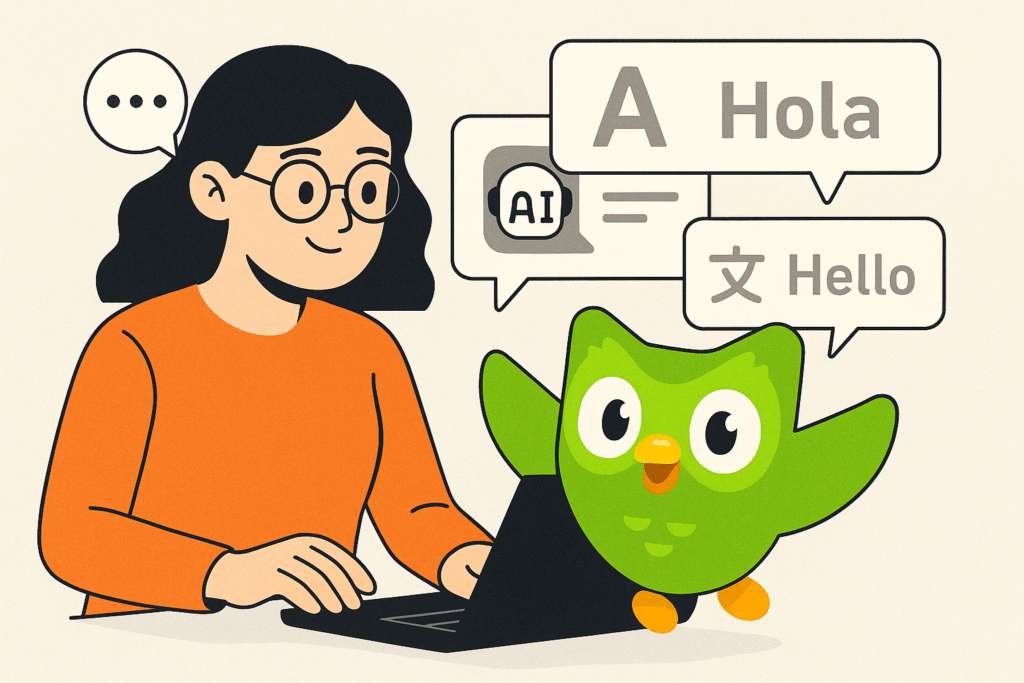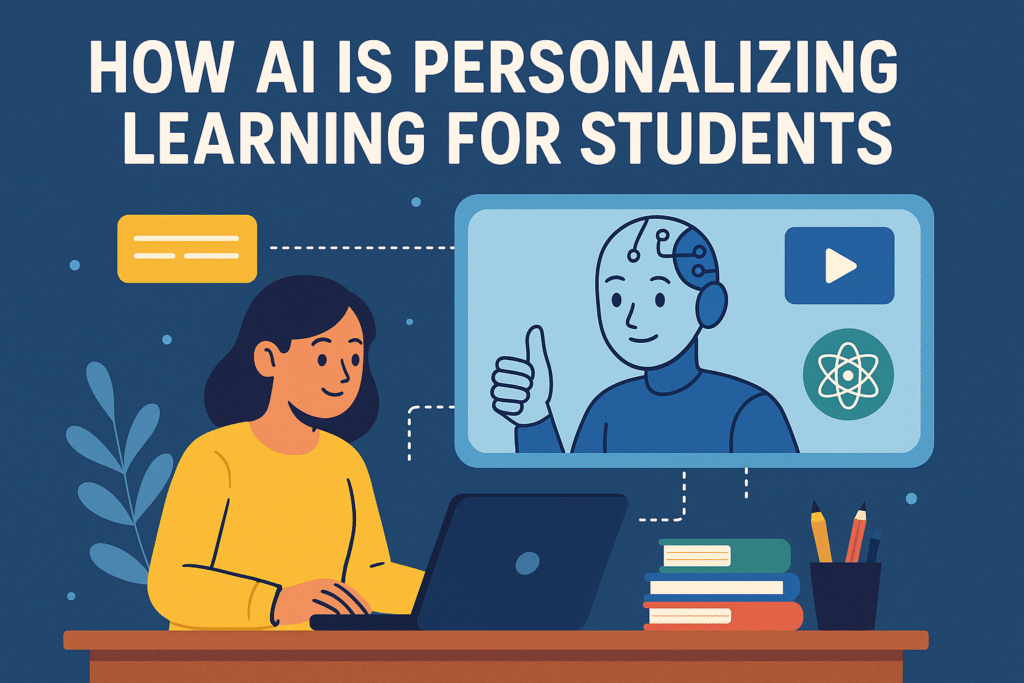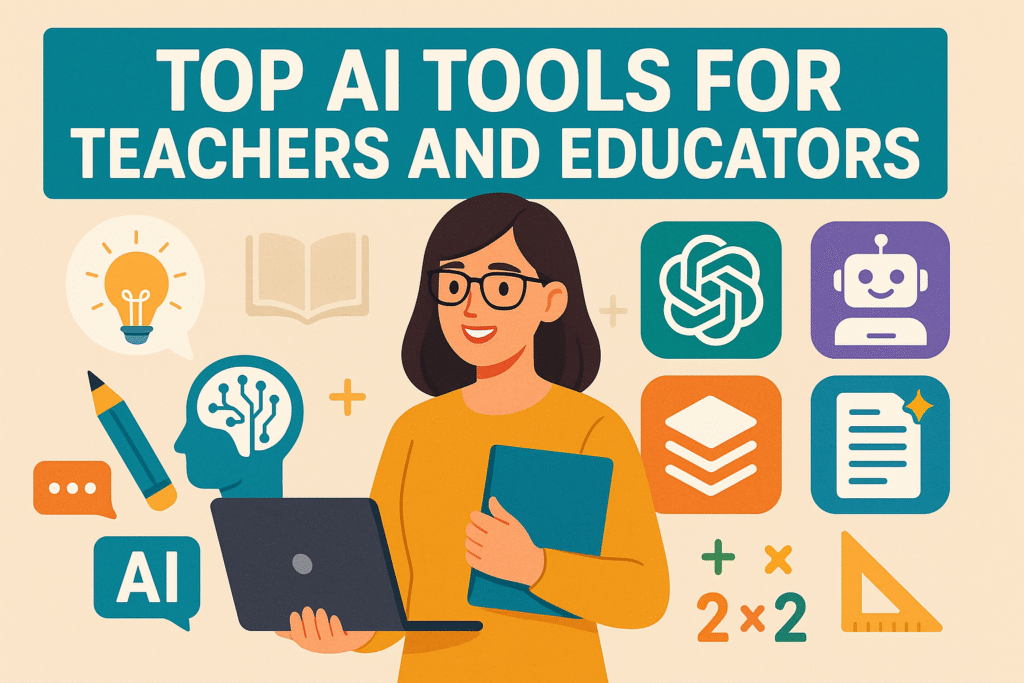🌍 AI in Language Learning Apps: How Duolingo & Others Are Getting Smarter
Explore how AI is powering language learning apps like Duolingo in 2025. Discover adaptive lessons, speech recognition, and personalized feedback—only on AiBlogQuest.com.
🧠 Introduction: AI Is Changing How We Learn Languages
Whether you’re learning Spanish, Hindi, or Japanese, AI in language learning apps is reshaping how we understand, practice, and retain new languages. Apps like Duolingo, Babbel, and Rosetta Stone now use powerful AI to personalize lessons, improve pronunciation, and predict your learning curve.
At AiBlogQuest.com, we’re diving deep into how AI is transforming language education in 2025.
🗣️ What Is AI Doing in Language Apps?
AI brings the following advancements to language learning platforms:
✅ Personalized Lesson Paths
AI tailors your next lesson based on performance, preferences, and even the time you usually practice.
✅ Natural Language Processing (NLP)
AI understands sentence structure and grammar, offering real-time corrections and explanations.
✅ Speech Recognition
Apps use AI-powered voice analysis to evaluate your accent, clarity, and pronunciation.
✅ Spaced Repetition Systems (SRS)
AI predicts when you’re likely to forget a word and serves it back to you just in time for better retention.
📱 Top AI-Powered Language Learning Apps in 2025
1. Duolingo
-
GPT-4 powered chatbot for conversational practice
-
Adaptive learning paths with streak systems
-
Speech analysis for pronunciation
-
Custom AI-generated practice sessions
2. Babbel
-
AI suggests content based on job role or travel needs
-
Speech recognition enhanced by machine learning
-
Real-life dialogues powered by AI transcription models
3. Busuu
-
AI predicts your CEFR level
-
Smart vocabulary review based on weak points
-
Personalized AI study plans for premium users
4. Mondly
-
Voice AI for real-time speaking practice
-
Uses AR + AI to simulate travel conversations
-
Multilingual support for over 30 languages
5. Rosetta Stone
-
Advanced voice recognition (TruAccent™)
-
AI-designed immersion lessons
-
Adaptive grammar drills
🎯 Benefits of AI in Language Learning Apps
-
🧠 Learner-specific pace and difficulty
-
🎤 Improved pronunciation and accent
-
⏱️ Faster retention via smart scheduling
-
🔄 Real-time feedback and correction
-
🌍 More languages, dialects, and scenarios supported
🔗 Useful Links
🌐 Resources
❓ FAQ – AI in Language Learning Apps
Q1: Is AI better than traditional language classes?
AI offers flexibility, instant feedback, and scalability, but it’s best used alongside human interaction or immersion.
Q2: Are AI apps good for beginners?
Absolutely. Most AI platforms adjust content difficulty dynamically and are ideal for A1 to B2 levels.
Q3: Is my pronunciation really improving with AI?
Yes—AI tracks vocal tone, pitch, and fluency and provides objective pronunciation scores over time.
🏁 Final Thoughts
AI in language learning apps is helping millions achieve fluency faster, smarter, and more enjoyably. Whether you’re using Duolingo for travel or Babbel for career growth, AI ensures every lesson is made just for you.
Stay updated on the smartest edtech tools at AiBlogQuest.com—where AI meets modern learning.
🏷️ Tags:
AI in Language Learning Apps, Duolingo AI, Speech Recognition AI, AI Education Tools, Smart Language Learning, AiBlogQuest



